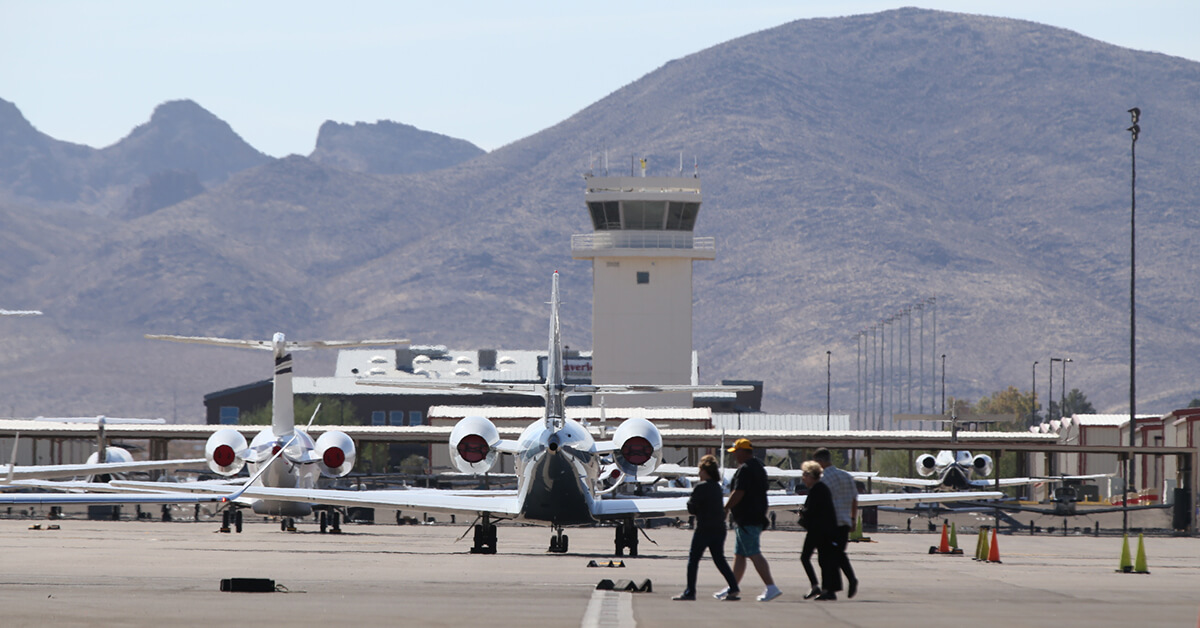
Aug. 24, 2020
The FAA recently achieved a significant milestone in one of its ongoing metroplex airspace efficiency projects, though the agency’s timetable for completion is also feeling the effects from COVID-19.
The agency announced last month a “Finding of No Significant Impact” on the final environmental assessment of planned routing changes in the Las Vegas Metroplex project, which aims to optimize aircraft arrival and departure procedures to airports in the region.
“The decision enables the FAA to move forward with the project,” the agency stated on July 16, “which will use cutting-edge satellite navigation to move air traffic more safely and efficiently through the area,” including to and from McCarran International Airport (LAS), North Las Vegas Airport (VGT) and Henderson Executive Airport (HND).
However, the agency has since announced the project’s targeted completion date will slip from November 2020 to late February 2021 due to the ongoing coronavirus pandemic.
“The FAA continues to adapt to the impacts of COVID-19, and Las Vegas is no different,” said Heidi Williams, NBAA’s director of air traffic services and infrastructure. “Personnel will require training on these new procedures, which is understandably difficult to accomplish in the current environment in which we must also minimize exposure.”
Similar difficulties also recently postponed the targeted implementation date for the Northeast Corridor Atlantic Coast Routes (NEC ACR) project, which involves 39 new/amended Q Routes and Y Routes to replace the north-south high-altitude route structure along the East Coast.
While the agency has successfully adapted many of its processes in the COVID-19 environment, Williams said business aviation stakeholders should prepare for other potential delays.
“The FAA is still navigating through this unprecedented time – as we all are – and we all need to stay flexible,” she concluded. “As we’ve done with other airspace changes, we’ll be sure to share and review the new routings and procedures with our members ahead of implementation.”
According to the agency, the Las Vegas Metroplex optimization is projected to save 1.6 million gallons of fuel annually, resulting in a projected savings to operators of $4.7 million, along with a 13.6-thousand metric ton annual reduction in carbon emissions.


 International Business Aviation Council Ltd.
International Business Aviation Council Ltd.